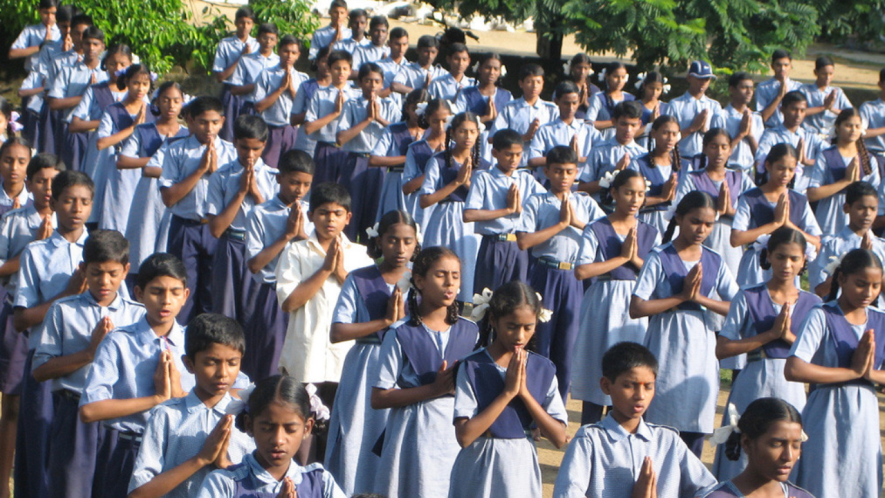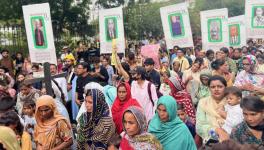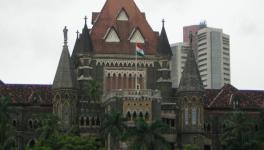Can a Teacher be Compelled to Offer Prayers in School Premises?

Representational Image. Image Courtesy: Flickr
Can anyone compel a teacher to offer prayers inside a school?
This was a little vexed question before the Bombay High Court when a case came up before a two-judge bench led by Justice Abhay Oka and Justice Revethi Mohiti-Dhere. Sudhir Salve, an atheist teacher from a school in Nashik -- who otherwise had an excellent record in his profession -- had approached it for relief, because the school management where he worked had denied increment to him for 'indiscipline'.
The teacher's refusal to fold hands at the time of school prayer or even at the time of taking oath of the Constitution was construed as such an act. As it happens in most such cases, Salve’s case had lingered on for more than six years in the lower courts.
But it did not take much time for the two-judge bench to decide the case, which declared that any such compulsion to fold hands will be a '[v]iolation of the fundamental rights conferred on an individual under the Constitution'.
One was reminded of Salve’s case when the suspension of Hemlata Bairwa, a Dalit lady teacher from an upper primary school in Rajasthan’s Baran district, made headlines recently.
To recapitulate the turn of events, it was Republic Day (January 26, 2024) and Bairwa had garlanded the portraits of B.R. Ambedkar, Savitribai Phule and Mahatma Gandhi before the assembly of students in her school. Two of her fellow teachers interrupted the programme and asked her to put a photograph of Saraswati, goddess of knowledge as per Hindu mythology, which she plainly refused. Despite pressure by them, who even allegedly made casteist slurs against her and were even helped by the local head of the panchayat, Bairwa refused to relent.
When the video of the whole incident went viral, the state education minister Madan Dilawar announced her suspension in a public programme -- an act that evoked a strong reaction within the Dalit community. Demonstrations were held in different parts of the state opposing this action by the education minister, demanding revocation of the suspension order and removal of the minister from the post.
The question arises: Will Bairwa similarly have to wait for a long period like Salve for justice? Or whether the Bombay High Court’s intervention would impel the Rajasthan High Court to take up her case suo motu.
What needs to be emphasised here is that in an atmosphere suffused with religiosity, when the ascent of Hindutva supremacist forces is a stark reality, the victimised teacher did not budge from her stand when she was accused of being ignorant of Hindu custom. She even retorted that “Hindu, Muslim, Sikh, Isai sab barabar hain (Hindu, Muslim, Sikh and Christians are all equal).
Anyone who is conversant with constitutional provisions and its debates would concur with Bairwa's contention that she was discharging her constitutional duties when she refused to put up a photograph of Saraswati.
A cursory glance at the constitutional debates makes it abundantly clear that a majority of the members -- despite their own religious inclination -- were clearly of the opinion that schools, whose basic purpose was supposed to open the minds of children and not make them dumping ground of useless information, should never be opened up for any type of religious instruction. It was clear that they were seeing the perils of poisoning of young minds by religious frenzy in this part of the sub-continent and were keen that the future of independent India could be secured only on secular grounds.
The insertion of Article 28 (1) just goes to show the united resolve of our founding fathers, which clearly states that:
“No religious instruction shall be provided in any educational institution wholly maintained out of State Funds “unless “established under any endowment or trust which requires that religious instruction shall be imparted in such institution”.
In fact, Article 28 of the Constitution makes it more explicit and does not leave any ambiguity as far its implementation is concerned,
“No person attending any educational institution recognised by the state or receiving aid out of state funds shall be required to take part in any religious instruction that may be imparted in such institution or to attend any religious worship that may be conducted in such institution or in any premises attached thereto unless such person or, if such person is a minor, his guardian has given his consent thereto cultural and educational rights”.
It needs to be underlined that the expression “religious instruction” here has a restricted meaning. It conveys that teaching of customs, ways of worship, practices or rituals cannot be allowed in educational institutions wholly maintained out of State funds.
What NCERT (National Council of Educational Research & Training), which is tasked by the Union government “to assist and advise the Central and State Governments on policies and programmes for qualitative improvement in school education” has advised also resonates with Bairwa's actions.
In a manual, NCERT underlined what alienates children from minority communities within school. The manual specifically mentions how they "[f]ind the prayers in the school assemblies and picture of gods and goddesses on the walls alien to them and has suggested some changes including the celebration of festivals related to religious minorities in schools, sensitive handling of these children during religious functions celebrated in schools, and adequate representation of minority parents in the School Management Committees (SMC)."
In fact, a five-judge constitutional bench of the highest court is also seized of a similar matter.
The bench has to deliberate on the question whether an extract from the Upanishads – which deals with Hinduism's philosophical underpinnings – can be used as a compulsory prayer song in Kendriya Vidyalaya schools. What a bench led by Justice Rohinton Nariman said before putting it before the Chief Justice is of great significance. It said that the questions raised in a public interest litigation filed by lawyer Veenayak Shah were of “seminal importance”.
The writer is an independent journalist. The views are personal.
Get the latest reports & analysis with people's perspective on Protests, movements & deep analytical videos, discussions of the current affairs in your Telegram app. Subscribe to NewsClick's Telegram channel & get Real-Time updates on stories, as they get published on our website.
























